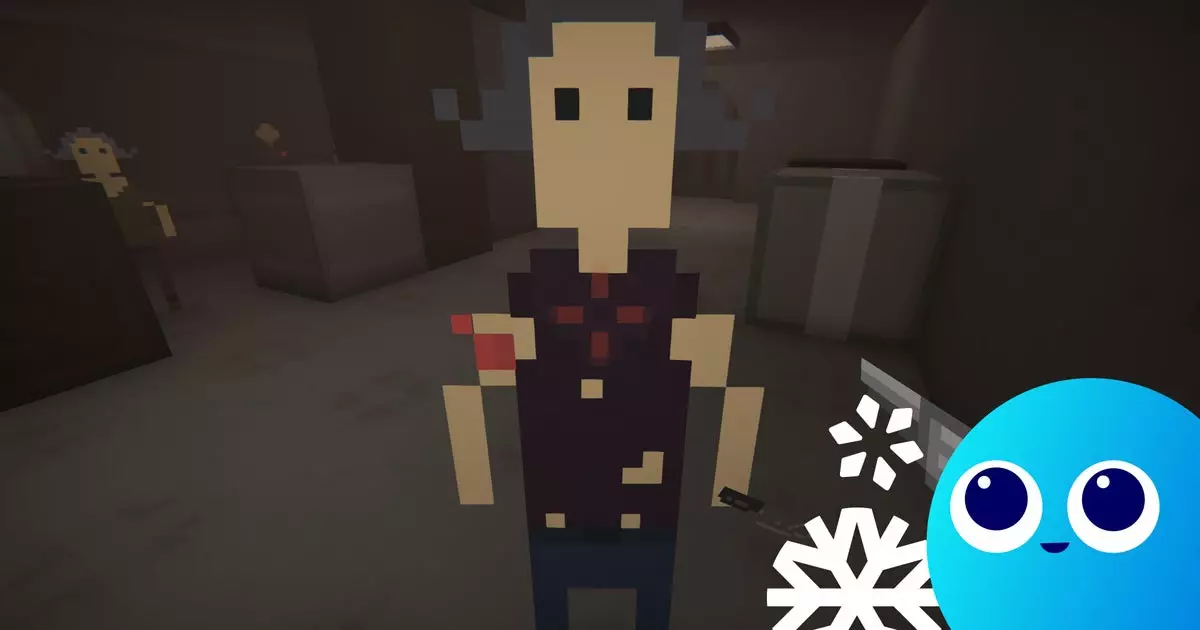The gaming world has always thrived on the marriage of innovative concepts and immersive gameplay. Amidst the vast array of titles being showcased during Steam Next Fest, one game has managed to carve out a space for itself with its compelling theme and gripping gameplay—is DoubleWe. Scheduled for play between February 24th and March 3rd, the Steam Next Fest provides a platform for players to dive into demo experiences like never before.
What sets DoubleWe apart is its intriguing premise where players must confront their very own duplicate. The scenario is chaotic and unpredictable, forcing players into a cramped, sci-fi environment layered with dubious non-player characters (NPCs). The tension builds as players not only have to identify their clone among a sea of similar figures but also act swiftly to neutralize the threat before it becomes their undoing. This dynamic mirrors classic horror tropes, yet it effectively translates them into a fast-paced gaming experience.
As players step into this eerily dystopian world, the game excels at fostering a palpable sense of paranoia. Imagine scavenging for a weapon while being incessantly aware that you have a malefactor lurking in the shadows, able to strike without warning. Engaging in this heart-pounding gameplay incites a series of quick choices, compelling players to weigh the risks of each action they take. Furthermore, the innovative use of a mirror as a tool for self-identification adds another layer of depth to the strategy involved, making the gameplay both a mental and visceral challenge.
One of the standout qualities of DoubleWe is how the stakes escalate with each encounter. Initially, players anticipate relying on the availability of makeshift weapons strewn throughout the game locale. However, experiencing the sheer slowness of accessing these resources transforms the excitement into dread. The design choice of sluggishly opening weapon stashes becomes a focal point, as every second counts. This careful pacing ensures that the fear of discovery and attack hangs over the player with each decision made.
In a world where trust is a luxury, the sense of impending doom escalates rapidly once the game introduces external threats, such as vigilant officers or relentless assassins. Suddenly, players are not only preoccupied with their clone but also racing against time and increased scrutiny. Such elements amplify the already suffocating atmosphere of suspicion, pushing players to reconsider their tactics, fight or flight instincts kicking in whenever they encounter danger.
Considering that many gamers may shy away from horror-themed titles, DoubleWe’s implementation of suspense is particularly noteworthy. Without resorting to overt jump scares or grotesque imagery, the game crafts tension through its intelligent game design. The balance between action and lurking hazards creates a gripping psychological environment, where the fear is cerebral yet very real. For lovers of the horror genre, this offers a fresh yet familiar take on survival.
Even as players grow accustomed to combat and can dispatch their clones successfully, the lurking dread of greater threats keeps the suspense alive. Future iterations promise to introduce even more horrifying elements, raising questions about how far the gameplay can evolve. With potential adversaries that not only mimic but also threaten to explode unpredictably, players remain at the edge of an exhilarating precipice.
DoubleWe presents itself as a remarkable gem amid the gaming landscape, particularly with its unique blend of tension-driven mechanics and an overarching theme of paranoia. The journey through its demo during the Steam Next Fest is a tantalizing glimpse into a game that specializes in suspense and innovation. As players await its full release, they can only ponder what other surprises lie in wait, further entrenching the game’s promise of discomfort and exhilaration in a remarkable fusion. Whether seasoned gamers or newcomers, everyone is bound to find a slice of thrilling intrigue within this intense confrontation with self.


Leave a Reply